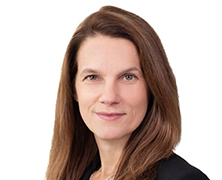There’s no secret sauce for balancing family and legal life but encouragement and mentors help
Within a few weeks of my return to private practice after more than a decade and a half in the government, a female mid-level associate visiting the San Francisco office of my firm asked if I could spare time to meet her for coffee. I said “of course,” we met, and almost the first words out of her mouth were “How do you do this?! How do you manage to become a partner while also raising kids?” This was the first of many such conversations I have had, the questions coming from junior, mid-level, and senior associates, and all from women.
I had no perfect answer. While I had never asked anyone the same question, I had attempted to research the issue, reading various authorities from biographies of “successful” women to how-to columns. I had cobbled together some pieces of advice – “prioritize what matters most,” “let go of the guilt,” “give yourself permission not to be perfect at everything all of the time” – all easier said than done and none a cure-all.
Rather than pretend I have the secret sauce, I have sought to listen, encourage, and serve as a resource and advocate for more junior attorneys (regardless of gender). I enjoy mentoring, both through Dechert’s formal mentorship program as well as through relationships that develop organically. With remote work during the pandemic, it was inherently more difficult for junior colleagues to try to build mentor relationships through casual interactions. Setting up virtual meetings requires more intentionality and persistence. But it’s worth it, for both mentees and mentors.
Dechert’s Global Women’s Initiative provides a forum for formal and informal mentoring, development and leadership training, networking, and special interest events. GWI also hosts the Sponsorship and Sustained Support Program geared to helping senior women associates navigate the path to partnership.
Junior attorneys are not the only ones who benefit from a support network. In my subspecialty of government enforcement defense and investigations, which still skews heavily male, the Women’s White Collar Defense Association (WWCDA) offers programming and business development opportunities to women in 48 chapters around the globe.
Mentoring women attorneys is critical to promoting diversity and inclusion in the legal profession. For mentees, it offers opportunities to improve legal skills, develop confidence, build professional networks, and understand the unwritten rules of the profession. For mentors, it is a chance to give back, develop leadership skills, gain fresh perspectives, and cheer on the professional and personal successes of the next generation. And by providing the scaffolding for such support communities, law firms can go a long way to helping young attorneys answer the question “How do I do this?!”







